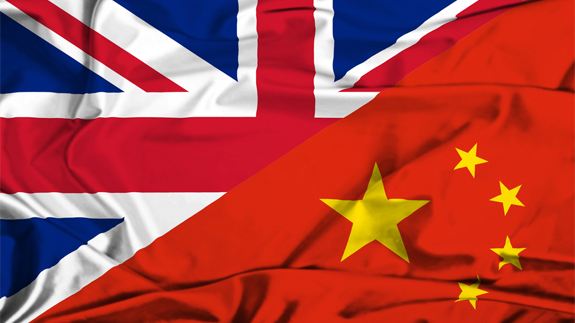Major Power Relations
Your Present Location: PROGRAMS> Major Power RelationsLi Wei: Time ripe for China-UK FTA
By Liwei Source: China Daily Published: 2019-3-29
Despite uncertainties of Brexit, cooperation between the two countries has bright prospects
With the world still undergoing an economic downturn and austerity, China should attach greater importance to deepening bilateral relations and building a network of free trade agreements with higher standards. As the world's sixth-largest economy, the United Kingdom is a key partner for China to explore the building of a high-level free trade agreement and deepen cooperation with developed countries.
Setting up an FTA would be of practical significance for both China and the UK. For the UK, it could reduce the uncertainty brought by Brexit and offset the negative impacts. For China, it would provide a valuable opportunity to cultivate new development space, upgrade its industrial structure; and accelerate its domestic reforms in environmental protection and intellectual property protection.
China-UK relations have always been especially important. Upon the founding of the People's Republic of China in 1949, the UK was the only Western country to establish diplomatic relationship with China. In March 2015, the UK took the lead in supporting the China-initiated Asian Infrastructure Investment Bank, followed by South Korea, Germany, France, Australia and other countries.
London's offshore renminbi market is second only to Hong Kong regarding its size and value. And the UK has mature capital markets and financial institutions of global clout. In the post-Brexit era, the UK will enjoy greater autonomy in foreign economic policy, which provides an opportunity for further cooperation with China, which should cover not only trade, but also finance, investment and environmental protection, among other areas.
China and the UK have a good foundation for economic cooperation. So after Brexit, the negotiation of a free trade agreement between China and the UK should be just a matter of time.
For now, the China-UK bilateral institutional framework is constantly improving, and there is enhanced coordination on the macro development strategies of the two countries.
China and the UK have also established a comprehensive dialogue mechanism from the top to the minister level, including the Annual Prime Ministers' Meeting, the Meeting of the UK-China High-Level People-to-People Dialogue, the China-UK Economic and Financial Dialogue and the China-UK Joint Economic and Trade Commission.
Also, cooperation between the two countries in the economic and trade fields has deepened in recent years. And the trade structures of the two countries are highly complementary: China is known for its manufacturing, while the UK excels in the service industry especially the finance industry. From this perspective, one of the biggest challenges to the China-UK FTA negotiations will be whether China accepts the opening of a higher-level service industry.

When it comes to the financing and investment sectors, London launched its offshore renminbi market in 2011, and in recent years there has been increasing cooperation in green finance.
Also, China's investment in the UK is on the rise. In particular, the British industrial chain receiving Chinese investment continues to expand and the investment has been moving up the value chain. Therefore, the prospects for a China-UK FTA are quite attractive.
The biggest uncertainty and difficulty of establishing a China-UK FTA lies in Brexit.
We do not know exactly how Britain will leave the European Union, how long it will take or whether it will be in a hard or soft manner.
In addition, the UK is a developed country and China is a developing one. Differences in not only languages and history but also values and industrial systems may trigger unexpected problems. For example, the different understanding on the new norms of international economic and trade rules. What's more, with China's advancement in higher end of industries, the competition between the two countries might be intensified and undermine the base for cooperation.
But China and the UK are looking at a golden opportunity. As cooperation between the two countries could achieve win-win results, both should actively accelerate the process.
The author is a professor with the School of International Studies at Renmin University of China. The author contributed this article to China Watch, a think tank powered by China Daily. The views do not necessarily reflect those of China Daily.
Li Wei is a fellow of Chongyang Institute for Financial Studies at Renmin University of China.























































































 京公网安备 11010802037854号
京公网安备 11010802037854号





